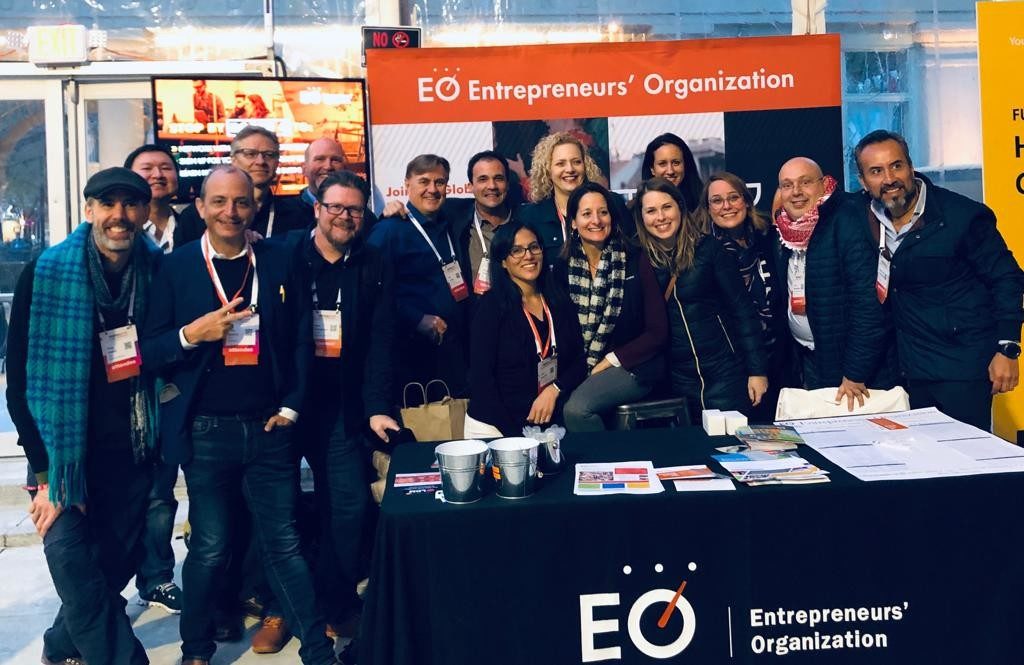Well, that’s a wrap on the 2019 Startup Grind Global in Redwood City, California. What an amazing venue—the old Fox Theatre! This year, I attended with the Entrepreneurs’ Organization (EO), as an ambassador and mentor.
EO is a peer-to-peer learning organization, so it made perfect sense to offer free mentoring sessions to conference attendees who wished to spend time with an entrepreneur.
And if you think the attendees who were “mentored” were the only ones who learned at these sessions, you’re wrong!
After 20 sessions, over two intense back-to-back days, I took away many lessons that I am excited to implement. Overall, I was very impressed with the quality of the attendees with their great energy and hope for the future. There is no end to ideas in a world where there is opportunity.
Here are my top findings from the Startup Grind Conference:
Start-ups want “other people’s” money
When I started my company, I had no concept of “other people’s” money. I simply started offering my services while saving and building.
From the conference, I got a vibe of great ideas that had not been tested or developed. The plan was to secure other people’s money—whether venture capital, friends or family—to get the business (the ideas) started.
When there are great ideas, it’s important to test them, quickly. With the evolution of the online task websites, where you can post any job to find someone who will do it for a small fee, why not start the testing there? Using your US$5,000 from savings could be all you need to find out if it’s going to work!
Many early-stage entrepreneurs have little knowledge about how to start a company
Ideas are flowing, and they are never-ending! I was so impressed with the businesses of the future. We are in exciting times for crazy ideas as populations grow, and all the niche markets are being formed. This means opportunity.
The key idea is that an idea is simply not enough. As I listened, I heard a gap in the knowledge of what to do with the idea—where to start and who to talk to. Launching a start-up is a difficult path to navigate.
This is where schools, colleges and universities could certainly raise their game. Incorporate classes that help students learn the process of commercializing an idea.
Mentoring is a necessity to all business people, no matter what phase they are in
Of the hundreds of attendees I spoke with, it was obvious that most had no one to talk to—no one who didn’t have an agenda, at least.
Getting help from business partners, boards of directors or investors is always going to be loaded, as they have a vested interest in the decisions and advice they give.
So where does an entrepreneur go? A mentor.
A mentor is a person with whom you can have open discussions, with no pressure to perform on anything discussed. This mentoring process is about sharing stories with each other and allowing the mentee to hear the value that resonates for them.
The lessons learned can be applied without any agenda, which builds an authentic relationship and method of learning.
Everybody is searching for the next big thing
Innovators, entrepreneurs and founders who I heard from had one thing in common: They were in search of the next big thing—whatever that is!
We live in a world where businesses are operating all around us in every part of our lives. The media makes some businesses famous and successful, but there are millions of other businesses. The search for that big idea can be hard, very hard.
Luckily, most of the successful business ideas are the simple ones. Even the simple ones can be scaled and successful. Keep it simple.
Many new ideas are a reverse model of a current model
I was very impressed with the ideas that many mentees had come up with. Most were crazy ideas that turned a current business model upside down or back to front: Ideas where we pay before or after, ideas where everything is free, ideas where people are involved where they weren’t before, ideas where AI will do all the tasks of humans.
I congratulate the next generation of entrepreneurs on how they are innovating to turn things upside down and make new businesses successful.
Lifestyle matters
Many people who I spoke with had not asked themselves how pursuing their idea would impact their lifestyle.
Launching and running a business demands involvement and commitment during every phase. A business doesn’t become successful without hard work, and hard work often requires sacrifice—giving up time with family or those opportunities for fun in life. Are you thinking about this when you plan your start-up?
Thank you to all the great mentors, all the mentees and the EO team!
 Carlo Santoro was born and educated in Melbourne, Victoria, Australia. Carlo is a dedicated EO member and has taken part in numerous leadership positions. Carlo is married with two children. He is the managing director of RetailCare and spends much of his time as an accomplished consultant and mentor to the retail industry.
Carlo Santoro was born and educated in Melbourne, Victoria, Australia. Carlo is a dedicated EO member and has taken part in numerous leadership positions. Carlo is married with two children. He is the managing director of RetailCare and spends much of his time as an accomplished consultant and mentor to the retail industry.
Categories: Entrepreneurial Journey Mentor Mentorship


 Carlo G. Santoro attended the
Carlo G. Santoro attended the